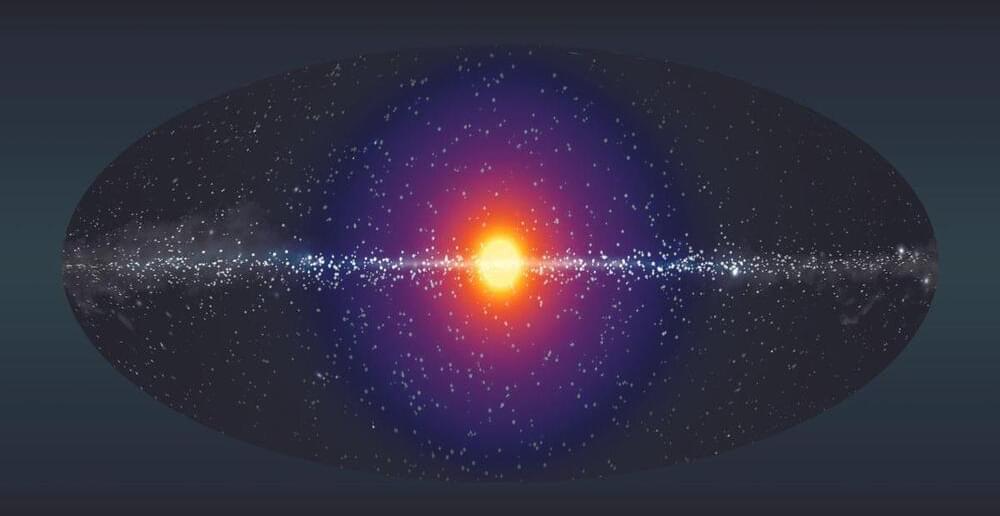“Assembly Theory,” a pioneering theoretical framework bridging physics and biology, offers transformative insights into biological evolution and its place within universal physical laws. With applications from…
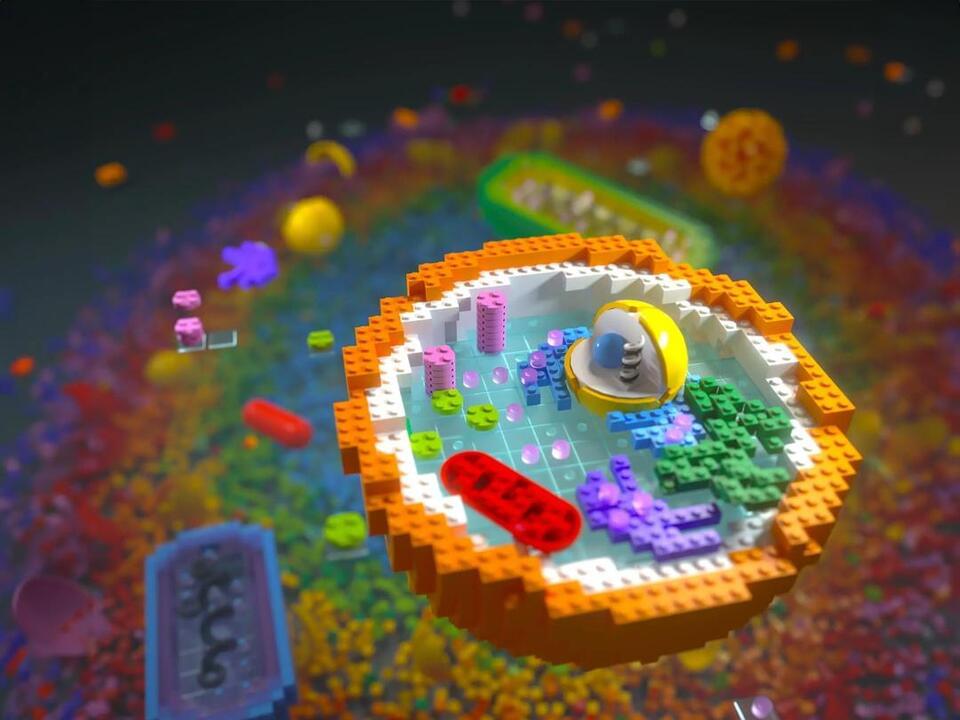

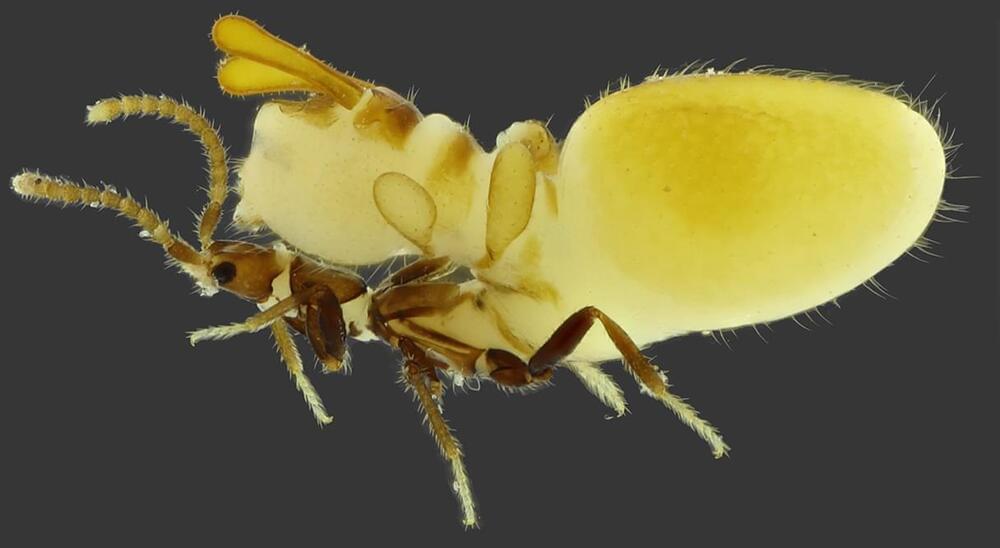
In what may be one of Earth’s craziest forms of mimicry, researchers have discovered a new species of rove beetle that grows a termite puppet on its back to fool real termites into feeding it. The replica is so precise, it even mirrors the termites’ distinct body segments and has three pairs of pseudoappendages that resemble antennae and legs.
Rove beetles (family Staphylinidae) are already infamous in the animal kingdom as masters of disguise. Some, for example, have evolved to look like army ants, allowing the beetles to march alongside them and feed on their eggs and young.
The new beetle species (Austrospirachtha carrijoi)—found beneath the soil in Australia’s Northern Territory—emulates a termite by enlarging its abdomen, a phenomenon known as physogastry. Evolution has reshaped this body part into a highly realistic replica of a termite (as seen above), head and all, which rides on top of the rest of the beetle’s body. The beetle’s real, much smaller head peeks out from beneath its termite disguise, the authors report this month in the journal.

Search giant Google is celebrating its 25th birthday today with a special doodle and by thanking its users. The idea of Google was born when Larry Page and Sergey Brin met at a Stanford University dormitory in 1995. Reportedly, Brin and Page made the search engine as part of a PhD project in 1998. The startup earlier called BackRub has gone on to become one of the most valuable and influential companies in the world.
In a blog post celebrating the 25th birthday of Google, the company wrote, “We may be a technology company, but Google is what it is today because of people: Our employees, our partners, and most importantly, all the people who use our products. So as we celebrate our 25th birthday today, we’re also celebrating 25 years of your curiosity. After all, your curiosity is what has fueled us — and our progress.”
In a blog post updating about the 25th birthday celebrations, Google informed that today’s Google Doodle honours the evolution of the Google logo over the last quarter century.

Viruses in soil may not be as destructive to bacteria as once thought and could instead act like lawnmowers, culling older cells and giving space for new growth, according to research out of the University of California, Davis, published Sept. 28 in the journal Nature Ecology and Evolution.
How viruses affect ecosystems, including bacteria, is challenging to untangle because they are complex and change over time and space. But the first annual rain on Mediterranean ecosystems, such as those in California, offers a kind of reset, triggering activity that can be observed.
Scientists took soil from four California grasslands, brought it back to their lab and simulated precipitation by watering the dry samples, which grew microorganisms and viruses. They tracked changes over 10 days.
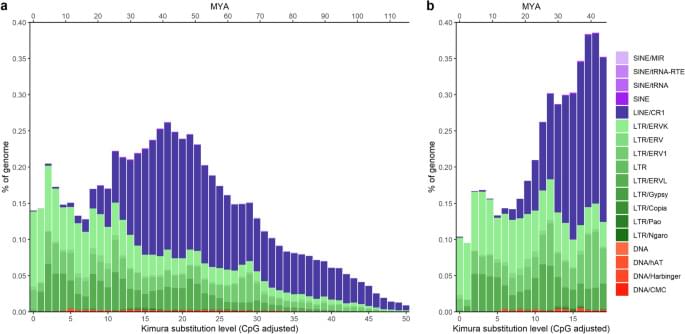
The effect of a TE on its host can be classified analogous to the effect of point mutations. In the majority of cases, the consequences of a TE their activity (transposition to a new genomic site) is either neutral or deleterious. The latter occurs, when TEs disrupt genes and their functions, or when, they trigger de-novo genomic instability by transposition or TE-mediated chromosomal rearrangements, which can lead to disease1, 3. TEs can occasionally have a positive impact on the host genome, for example, by impacting gene regulatory networks. In the British peppered moth (Biston betularia), a TE inserted within the first intron of the cortex gene, resulted in increased transcription levels, subsequently affecting cell cycle regulation during wing-disc development through the amount of cortex protein product, resulting in the iconic melanic form4. However, more research is needed to understand these different evolutionary impacts that TEs can have when interacting with their host genome.
The increased accessibility to high throughput sequencing technologies has greatly increased our ability to analyse genetic differences caused by changes at the nucleotide level, and patterns of natural selection on coding sequences, and simultaneously allowed us to disentangle phenotypic differences at the nucleotide level. Mounting evidence has started to shed light on non-coding regions having important effects on genomic variation3. While TEs can be found in the genomes of virtually all organisms, large proportions of TEs are often absent from reference genomes, as their repetitive nature impedes their assembly and can result in collapsed regions within the reference genome2, 5. These difficulties have led to an increased demand for reference genomes that are of a higher quality and are more complete. More importantly, a new demand for high-quality annotations of non-coding regions in reference genomes has surfaced. Annotations of non-coding regions are imperative to study the evolution of these regions between and within species. Improvements in sequencing techniques, especially the addition of long-read sequencing, and improved bioinformatic analytical tools are resulting in the assembly of increasingly gapless reference genomes, enabling the curation of high-quality TE annotations.
The current efforts of large consortia, such as the VGP6 and the B10K7 to create high-quality references for a wide variety of organisms provide invaluable data to improve our endeavours for a better understanding of TEs. With these new resources we can take our research into TEs and their effects on host genomes further, for example, to better understand the evolution of complex traits across phylogenomic scales. One such a complex trait is seasonal bird migration and recent research across a migratory divide in willow warblers identified a diagnostic TE correlated with migratory direction8. Here we focus on the Eurasian blackcap (Sylvia atricapilla), another iconic model species for bird migration, and consequently, the resource published here may be able to add insight to the quest to resolve the genetic background of migratory behaviour.
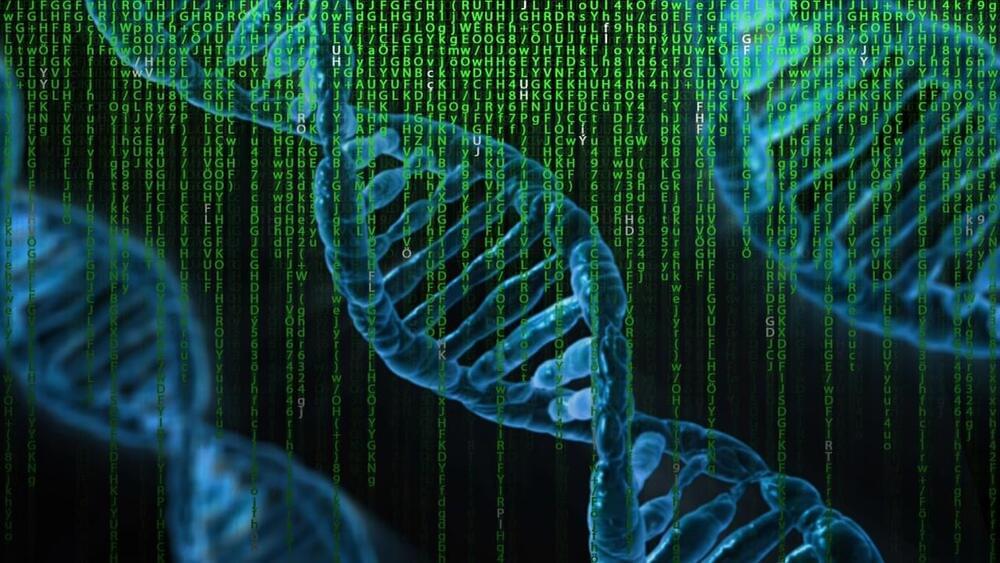
Ribonucleic acid (RNA) is a molecule which is present in cells and made of genetic material to help build proteins necessary for cell function. RNA provides a template for the construction of proteins and is essential for cell and organism life. Immune cells rely on these proteins, including CD8+ or cytotoxic T cells which are responsible for killing invading pathogens. Importantly, cytotoxic T cells are a major component of the memory immune response. A pool of T cells specifically designed to recognize an invader is stored for future invasion of that particular pathogen. For example, once these cells are exposed to an invading antigen or protein, the immune system will expand T cells specific to that antigen and remember the antigen next time it enters the body. Vaccines work in a similar way by introducing a foreign antigen to the body, so the immune system is ready if the pathogen ever enters your body in the future. Only a small set of T cells that expand survive and it is unclear how this process occurs.
Recently a team of researchers at the University of Massachusetts Amherst (UMass) demonstrated that a single strand of RNA governs a T cells ability to recognize and kill tumors. The single strand of RNA is known as let-7 and is a microRNA, which is responsible for gene expression regulation. The recent discovery may improve vaccine development and cellular memory to enhance immunotherapy against cancers. Immunotherapy is a general term referring to cancer therapies that try to activate the immune system to kill the tumor compared to other drugs that try to directly kill the tumor with chemicals, such as chemotherapy.
The report published in Nature Communications identified that the microRNA, let-7, may enhance memory of T cells. Researchers led by Dr. Leonid Pobezinsky, Associate Professor of Veterinary and Animal Sciences at UMass, further built on our understanding of how T cells form immune memory. Pobezinsky and colleagues found that a small piece of microRNA that has been present throughout evolution is expressed in memory cells. Additionally, they found that more let-7 a cell has, the more likely that cell will recognize a cancer cell and kill it. The increased let-7 also indicates that the cell will turn into a memory cell after being exposed to an antigen. The regulation of enhanced memory T cells by let-7 is an integral process key to fight infections. This is a critical finding, especially because memory cells retain stem-like characteristics and can survive for decades.

Now, scientists have a mathematical model that closely matches how the human brain processes visual information.
Scientists have confirmed that human brains are naturally wired to perform advanced calculations, much like a high-powered computer, to make sense of the world through a process known as Bayesian inference.
In a study published in the journal Nature Communications, researchers from the University of Sydney, University of Queensland and University of Cambridge developed a specific mathematical model that closely matches how human brains work when it comes to reading vision. The model contained everything needed to carry out Bayesian inference.

In an age of unpredictable job evolution, it is hard to argue that the knowledge acquisition historically associated with a university degree is still relevant. But as university qualifications become more commonplace, recruiters and employers will increasingly demand them, regardless of whether they are actually required for a specific job. Research shows that the correlation between education level and job performance is weak, and that intelligence scores are a much better indicator of job potential. If we were to pick between a candidate with a college degree and a candidate with a higher intelligence score, we could expect the latter to outperform the former in most jobs, particularly when those jobs require constant thinking and learning.
